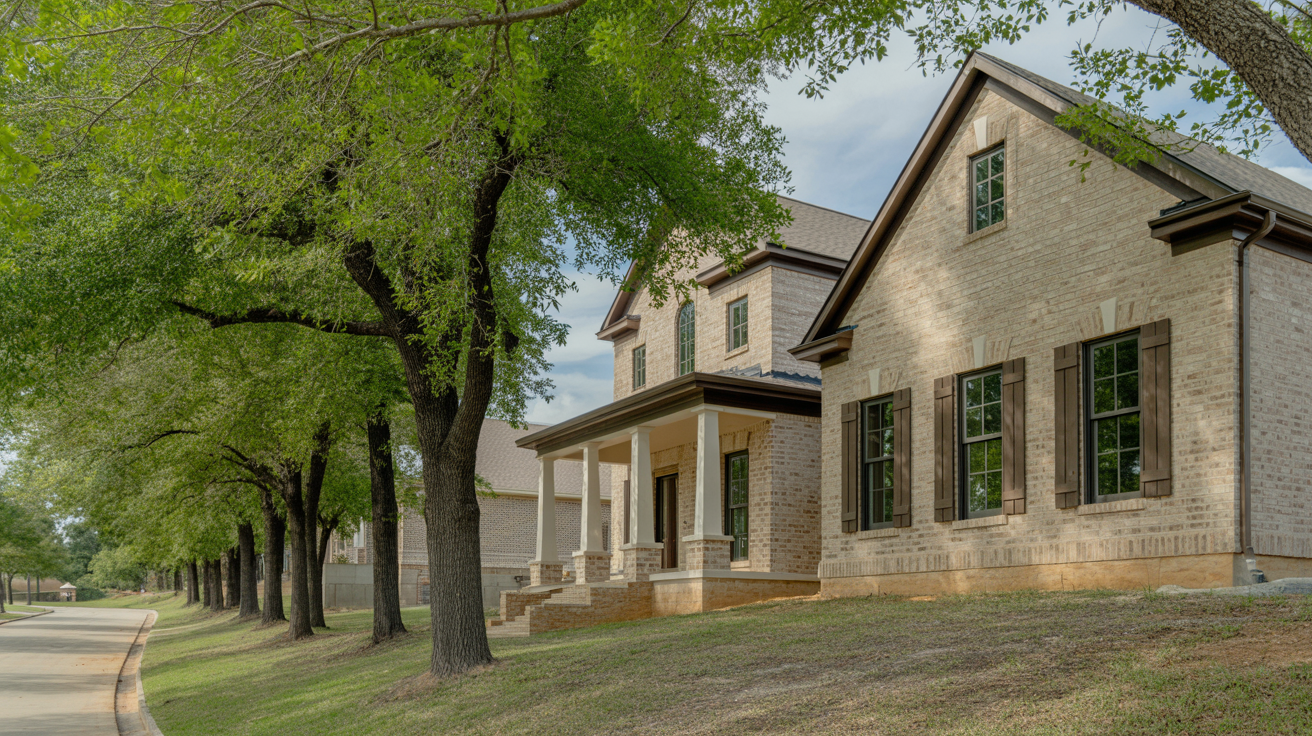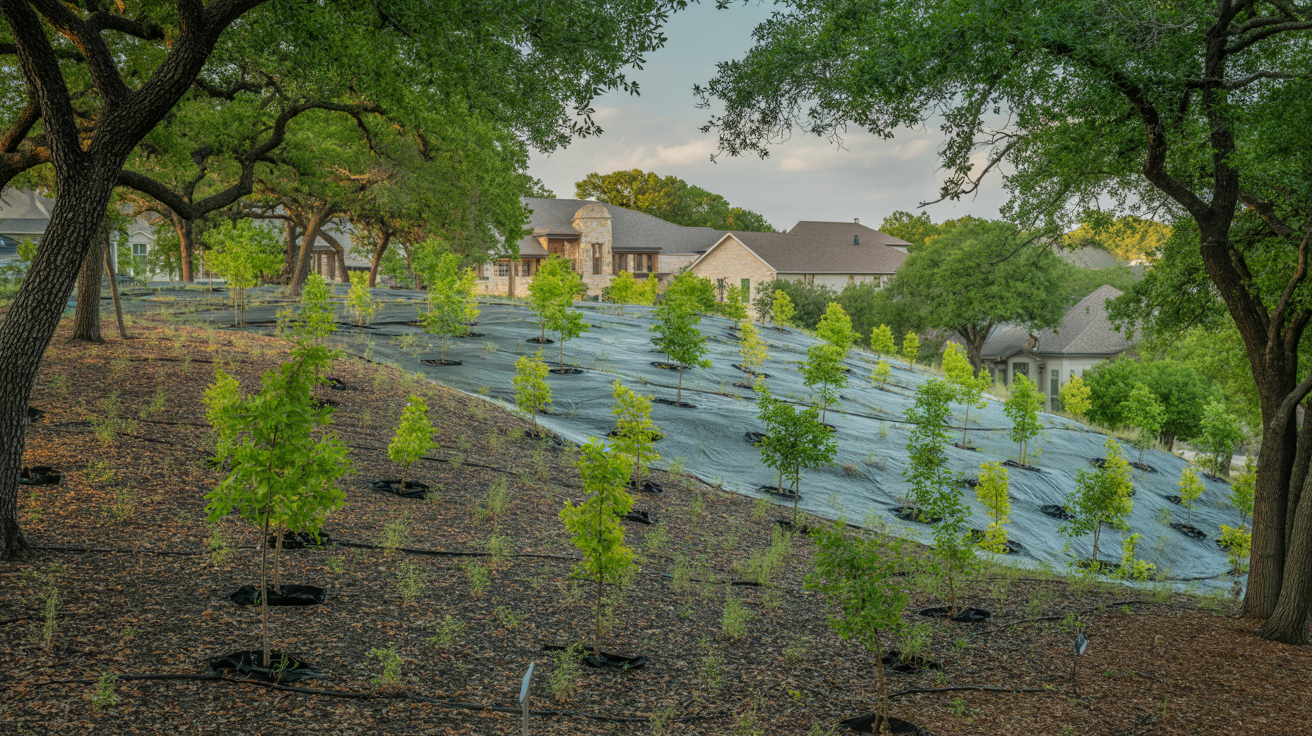Finding the Right Building Contractor in Spicewood: Essential Tips for Texas Hill Country Construction
Building Contractor in Spicewood: Experts share 20+ years of insights on vetting contractors, avoiding pitfalls & project success.

When you need a building contractor in Spicewood, finding the right professional can make the difference between a smooth construction experience and a costly nightmare. After more than 20 years in construction and founding Earth in Motion, Inc. in 2005, I've seen firsthand how the right approach transforms challenging projects into successful outcomes. The Spicewood area presents unique opportunities and challenges that demand experienced hands and local knowledge.
Understanding What Makes Spicewood Construction Projects Unique
The terrain around Spicewood differs significantly from other parts of Texas. Your property might sit on rocky limestone, expansive clay, or even near water features that require special consideration. I've worked on projects where we discovered underground springs mid-excavation, and others where the rock was so hard it required specialized equipment to break through.
During my years serving the Austin area and surrounding communities, I've learned that each location has its personality. Colorado taught me about altitude and weather extremes, but Texas soil conditions brought their own lessons. The Hill Country around Spicewood can shift from solid rock to soft clay within a few feet, making site preparation critical to project success.
Your contractor needs to understand these local conditions before breaking ground. I remember one project where another contractor had started work without proper site evaluation. The homeowner called us in when their foundation began settling unevenly. We had to start over with proper soil analysis and stabilization techniques.
Site Evaluation and Preparation Challenges
Every Spicewood property tells a story through its soil composition and topography. Before I provide any project estimate, I spend time walking the site and understanding what lies beneath the surface. This approach has saved my clients thousands of dollars in unexpected costs and weeks of delays.
Rock excavation often becomes necessary in this area. Unlike softer soils where standard equipment works fine, limestone and other hard materials require specialized tools and techniques. The key is identifying these challenges early rather than discovering them after work begins.
Drainage also plays a crucial role in Spicewood construction projects. The rolling hills can create unexpected water flow patterns, especially during heavy rains. I always evaluate how water moves across and through a property before finalizing any construction plans.
Vetting Your Building Contractor in Spicewood: What Really Matters
Experience counts more than fancy marketing materials or low bids. When evaluating contractors, you want someone who has solved problems similar to yours. I've found that clients appreciate hearing about past challenges and how we overcame them rather than just seeing pretty pictures of finished projects.
Insurance and bonding protect both you and the contractor. However, not all insurance policies are created equal. Your contractor should carry general liability insurance that covers property damage and personal injury. Additionally, workers' compensation protects you from liability if someone gets hurt on your property during construction.
References matter, but smart clients ask specific questions. Instead of just asking if past clients were satisfied, inquire about how the contractor handled unexpected issues. Did they communicate changes clearly? Did they stay within the agreed timeline? How did they resolve problems when they arose?
Red Flags That Signal Potential Problems
Door-to-door contractors often spell trouble, especially after storms. Legitimate contractors stay busy through referrals and repeat business rather than cold-calling homeowners. If someone shows up unannounced offering to fix damage you didn't know existed, proceed with extreme caution.
Requests for large upfront payments should raise immediate concerns. Established contractors typically request minimal down payments and tie subsequent payments to completed milestones. I structure payments so clients never pay for work that hasn't been completed.
Vague contracts create opportunities for disputes. Your agreement should specify materials, timelines, responsibilities, and change order procedures. If a contractor seems reluctant to put details in writing, that's a warning sign.
Project Management and Communication That Actually Works
Clear communication prevents more problems than any other single factor. I learned this lesson early in my career when a simple misunderstanding about material specifications nearly derailed an entire project. Now I document everything and confirm understanding at each step.
Timeline management requires both planning and flexibility. Weather, permit delays, and material availability can affect schedules, but experienced contractors build contingencies into their planning. I always provide realistic timelines rather than overly optimistic projections that set false expectations.
Change orders happen on most projects, but they should never come as surprises. When I identify potential changes during construction, I explain the situation, provide cost implications, and get written approval before proceeding. This approach protects both parties and maintains trust throughout the project.
Keeping Projects on Track Despite Challenges
Weather presents ongoing challenges in Texas construction. Summer heat affects both worker productivity and material performance, while winter can bring unexpected freezes that halt concrete work. Experienced contractors plan around these seasonal factors rather than hoping for perfect conditions.
Permit processes vary between jurisdictions, and delays are common. I always factor permit processing time into project schedules and maintain relationships with local building departments to streamline approvals. This preparation prevents permits from becoming project bottlenecks.
Material delivery challenges have increased in recent years. Supply chain disruptions can delay specific products for weeks or months. I address this by ordering materials well in advance and identifying alternative products that meet the same performance standards.
Understanding Construction Costs and Pricing Factors in Spicewood
Project costs depend on numerous variables that many homeowners don't initially consider. Site accessibility affects everything from material delivery to equipment positioning. A property with easy access and level ground costs less to develop than one requiring special equipment or extensive site preparation.
Material selection dramatically impacts final costs. The difference between basic and premium materials can double or triple certain project elements. However, sometimes spending more upfront saves money long-term through reduced maintenance and longer lifespan.
Labor requirements vary based on project complexity and timeline constraints. Specialized work like custom stonework or complex electrical systems requires skilled craftsmen who command higher wages but deliver superior results. Rush jobs also cost more because they require additional workers or overtime hours.
How Environmental Factors Affect Construction Costs
Soil conditions significantly impact foundation and excavation costs. Rocky terrain requires more expensive equipment and takes longer to excavate, while expansive clay soils need special foundation designs to prevent future problems. Proper soil evaluation upfront helps avoid cost surprises later.
Water management adds complexity to many Spicewood projects. Properties near creeks or in flood-prone areas require additional drainage infrastructure and elevation planning. While these measures increase initial costs, they prevent expensive flood damage and insurance issues.
Environmental regulations can affect project scope and costs. Wetland protections, tree preservation ordinances, and historic district requirements all influence what's possible and permissible on specific properties. Understanding these constraints early prevents costly design changes mid-project.
Avoiding Common Pitfalls in Contractor Selection
Price-only decisions often lead to disappointment. The lowest bid frequently comes with hidden costs, substandard materials, or corner-cutting that creates long-term problems. I've been called in to fix numerous projects where homeowners chose contractors based solely on price and later regretted that decision.
Unwritten agreements create problems when memories differ about what was promised. Everything should be documented, from initial conversations through final inspection. I provide detailed written estimates and contracts that eliminate ambiguity about project scope and responsibilities.
Rushing the selection process increases mistake likelihood. Take time to interview multiple contractors, check references, and verify credentials. The few extra days spent on proper vetting can save months of problems and thousands of dollars in corrections.
Warning Signs During the Bidding Process
Estimates that seem too good to be true usually are. Contractors who drastically underbid either don't understand the project scope or plan to cut corners somewhere. Both scenarios lead to problems that cost more than hiring a qualified contractor initially.
Pressure tactics indicate unprofessional practices. Legitimate contractors understand that good decisions take time and don't pressure clients to sign immediately. If someone insists you must decide today to get a special price, that's manipulation, not good business.
Inability to provide local references suggests limited experience in your area. Contractors familiar with Spicewood conditions should have multiple satisfied local clients willing to discuss their experiences. If they can't provide references, look elsewhere.
The Value of Local Experience and Knowledge
Local building codes and permit requirements vary significantly between jurisdictions. What's acceptable in Austin might not be allowed in the Spicewood area, and vice versa. Contractors familiar with local requirements navigate these differences smoothly, while outsiders often encounter delays and additional costs.
Established relationships with local suppliers, subcontractors, and officials facilitate smoother project execution. When I need specialized equipment or materials quickly, my local connections often mean the difference between minor delays and major setbacks.
Understanding regional weather patterns helps with project planning and material selection. I know when to expect the first freeze, how long summer heat waves typically last, and which months bring the heaviest rains. This knowledge influences scheduling and construction methods.
Building Long-Term Client Relationships
Quality work creates ongoing relationships that benefit both parties. Many of my current clients started with small projects years ago and now call me for major renovations because they trust my work and approach. These relationships provide valuable referrals and repeat business.
Standing behind completed work demonstrates confidence in craftsmanship. I warranty my work and respond quickly when clients have concerns. This approach occasionally costs money upfront but builds the reputation that sustains long-term business success.
Community involvement beyond just construction projects helps build trust and understanding. I participate in local events and support community initiatives because I believe in contributing to the areas where I work. This involvement also keeps me connected to local needs and concerns.
Making the Final Decision With Confidence
Trust your instincts after completing due diligence. If something feels wrong about a contractor or their approach, investigate those concerns thoroughly. Your gut feelings often identify real problems that formal vetting might miss.
Consider the total value proposition rather than focusing solely on initial costs. A contractor who delivers quality work on time with excellent communication provides more value than one who offers lower prices but creates stress and problems throughout the project.
Plan for ongoing communication and project oversight. Even the best contractors need client input and feedback during construction. Establish clear communication protocols and expectations before work begins to ensure smooth project execution.
Finding the right professional requires careful evaluation of experience, credentials, communication skills, and local knowledge. Your project deserves someone who understands both the technical challenges and unique characteristics of your specific location. When you invest time in proper contractor selection, you're protecting both your property investment and your peace of mind throughout the construction process. Choose a qualified building contractor in Spicewood who brings the experience and integrity your project deserves.
FAQ About Hiring a Building Contractor in Spicewood
What should I look for when evaluating a building contractor in Spicewood?
Experience with local conditions matters most when selecting a contractor for your Spicewood project. Look for someone who understands the unique challenges of Hill Country terrain, from rocky limestone excavation to expansive clay soil management. I've spent over 20 years learning how different soil compositions affect construction outcomes, and this knowledge prevents costly surprises during your project. Verify their insurance coverage, check local references, and ensure they can provide detailed written contracts. Most importantly, choose someone who communicates clearly and documents all project decisions to avoid misunderstandings.
How do soil conditions in Spicewood affect my construction project costs?
Spicewood's diverse terrain significantly impacts project complexity and costs. Your property might have solid limestone requiring specialized excavation equipment, or expansive clay soils needing custom foundation designs. I always conduct thorough site evaluations before providing estimates because soil conditions can shift dramatically within a few feet. Rocky terrain takes longer to excavate and requires more expensive equipment, while clay soils might need stabilization measures. Water management also becomes crucial near creeks or in areas with underground springs. These factors influence material selection, equipment needs, and construction methods, all of which affect your final investment.
What makes construction projects around Spicewood different from other Texas locations?
The Hill Country presents unique challenges that require local expertise and specialized approaches. Unlike flatter areas around Austin where standard equipment works fine, Spicewood properties often sit on limestone formations that demand different excavation techniques. I've encountered underground springs mid-project and dealt with dramatic soil changes that would surprise contractors unfamiliar with the area. Drainage patterns also differ significantly due to rolling hills, creating water flow challenges during heavy rains. Weather impacts vary too - the elevation changes affect temperature and moisture patterns that influence construction scheduling and material performance.
How do you handle unexpected issues that arise during construction in Spicewood?
Clear communication and thorough documentation prevent most construction surprises, but when unexpected conditions arise, I address them immediately with complete transparency. If we discover rock formations that weren't apparent during initial site evaluation, I explain the situation, provide cost implications for different solutions, and get written approval before proceeding. My approach involves building contingencies into project timelines because local conditions can present challenges like harder-than-expected excavation or drainage issues. I document all changes and maintain regular communication so you're never surprised by project modifications or timeline adjustments.
What should I expect during the contractor selection and project planning process?
The selection process should begin with detailed site evaluation and thorough discussion of your project goals. I spend significant time walking your property to understand soil conditions, drainage patterns, and access challenges before providing estimates. Expect comprehensive written proposals that detail materials, methods, timelines, and responsibilities. Reference checks should focus on how past clients felt about communication and problem-solving rather than just project satisfaction. Once selected, your contractor should provide clear communication protocols, realistic timelines that account for weather and permit processing, and detailed contracts that eliminate ambiguity about project scope and change order procedures.



